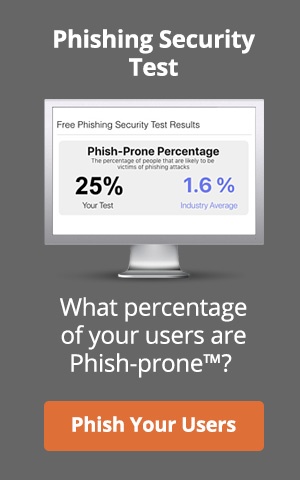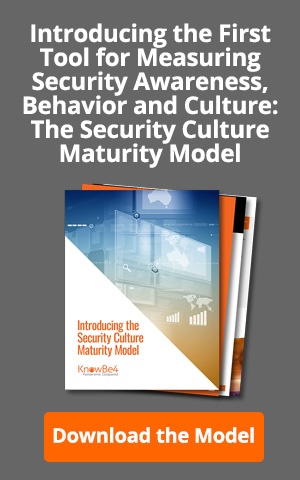94% of Australian IT decision makers believe sharing information would benefit their organisation
According to new research from KnowBe4, 41% of IT decision makers in Australia believe the use of AI (by deploying advanced threat detection, automated response mechanisms, and predictive analytics) will help them protect their organisation from cyber-attacks.
In the latest research from KnowBe4, conducted by YouGov, more than 200 Australian IT decision makers were asked to rank a list of common security practices in order of how beneficial they are to protecting their organisation. The most popular choices were network security measures such as implementing firewalls and intrusion detection systems (68%) and multi-factor authentication (64%). This was followed by regular software patching and updates (61%) while one in two who ranked encryption of sensitive data (54%) and regular cybersecurity awareness training for employees (53%) within their top five.
Information sharing remains key with 42% ranking collaboration between organisations, businesses, law enforcement and government, but AI is emerging as an influential tool with 41% of IT decision-makers placing AI within their top five defence strategies.
“There has been a lot of discussion about the new cyber threats that AI is enabling but it’s great to see the understanding of the benefits AI can also bring to keeping organisations secure,” says David Bochsler, VP of sales APAC at KnowBe4. “The reality is there is no easy solution for organisations when it comes to protecting against cyber threats and best practice requires a mix of the practices and solutions available, alongside a robust cybersecurity awareness training program for employees.
A call for information sharing
When asked specifically about sharing information and best practices about data breaches between organisations, businesses, law enforcement and the Government, close to all (94%) Australian IT decision makers said they believe it would benefit their organisation.
When asked about how it could benefit their organisation, two in five think it would help in aiding in early detection of potential threats and vulnerabilities or increasing overall awareness of cybersecurity issues among staff (43% respectively), facilitating the sharing of knowledge and lessons learned from others' experiences (41%), and contributing to better risk mitigation strategies and practices (39%).
Over a third (36%) believe minimising the financial impact of potential data breaches would benefit their organisation, and three in ten say facilitating collaboration with government agencies and law enforcement (31%), enhancing incident response capabilities and reducing response time (30%), providing benchmarks for industry cybersecurity standards and practices, or assisting in meeting regulatory compliance requirements more effectively (29% respectively) would be beneficial.
Furthermore, over one in five Australian IT decision makers believe fostering collaborative defence strategies with other organisations (26%) or allowing access to anonymised incident data for analysis without revealing specific organisational details (23%) would benefit their organisation.
“There is definitely a consensus among Australian organisations that crowdsourcing information could be beneficial to preventing cyber risks in a multitude of different ways,” continues Bochsler. “Cyber threats are continuing to ramp up so we would urge the Australian industry and government leaders to consider how this could be introduced.”
For more information on KnowBe4, visit www.knowbe4.com.
Research methodology:
This study was conducted online between the 4th – 10th January 2024. The sample comprised of 216 Australian IT decision makers across industries. YouGov designed the questionnaire. The data is unweighted.
About KnowBe4
KnowBe4, the provider of the world’s largest security awareness training and simulated phishing platform, is used by more than 65,000 organisations around the globe. Founded by IT and data security specialist Stu Sjouwerman, KnowBe4 helps organisations address the human element of security by raising awareness about ransomware, CEO fraud and other social engineering tactics through a new-school approach to awareness training on security. The late Kevin Mitnick, who was an internationally recognised cybersecurity specialist and KnowBe4’s Chief Hacking Officer, helped design the KnowBe4 training based on his well-documented social engineering tactics. Organisations rely on KnowBe4 to mobilise their end users as their last line of defence and trust the KnowBe4 platform to strengthen their security culture and reduce human risk.














